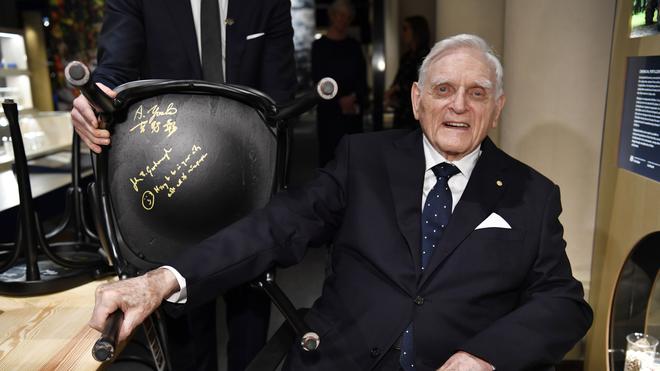John Goodenough, who shared the 2019 Nobel Prize in chemistry for his work developing the lithium-ion battery that transformed technology with rechargeable power for devices ranging from cellphones, computers, and pacemakers to electric cars, has died at 100, the University of Texas announced on June 26.
Goodenough died Sunday at an assisted living facility in Austin, the university announced. No cause of death was given. Goodenough was a faculty member at Texas for nearly 40 years.
“Live to 97 and you can do anything,” Goodenough said when the Nobel was awarded, adding he was grateful he wasn’t forced to retire at 65.
And while his name may not ring a bell to most, Goodenough’s research helped unlock a revolution in technology now taken for granted in today’s world of portable phones, tablets and just about anything else with a plug-in port for a recharge.
Lithium-ion batteries were the first truly portable and rechargeable batteries, and they took more than a decade to develop. Whittingham said in 2019 that he had no inkling that his work decades ago would have such a profound impact on the world.


